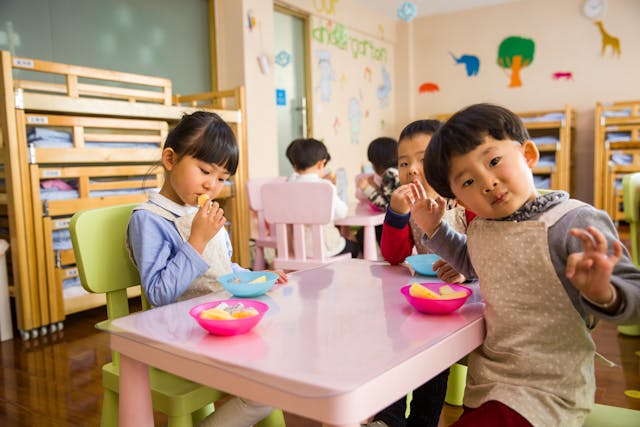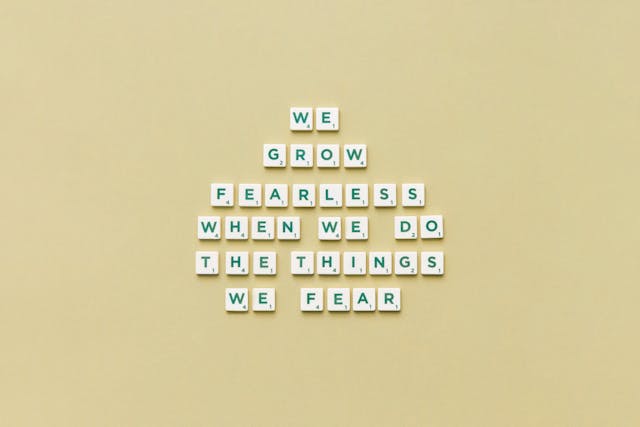15 Things You Should Not Share With Your Kids

I used to think being totally open with my kids meant I was being a “real” parent. If I showed them all my raw thoughts and struggles, they’d grow up understanding the world better, right? But I quickly learned that there’s a fine line between being authentic and being inappropriate—and kids aren’t miniature adults who can process everything the way we do.
Children are like emotional sponges. They pick up on words, moods, and even things left unsaid. They don’t just hear you; they feel you. So when we offload grown-up burdens onto their little shoulders, we’re unintentionally making them feel unsafe, worried, or confused. Parenting isn’t about hiding everything, but it is about protecting their emotional space.
Here are 15 things you should avoid sharing with your kids—not because they don’t matter, but because your child’s mind isn’t built to carry them yet.
1. Your Financial Problems
Kids shouldn’t lie awake wondering if the lights will be shut off or if you’ll lose the house. That kind of anxiety can cause emotional stress and a sense of insecurity that lingers long after the problem is solved.
Even casual comments like, “We can’t afford that,” or “Money is tight right now,” can plant seeds of fear. Kids may start blaming themselves or feeling guilty for asking for basic things. They might even start comparing your situation to others and feel less than.
Instead, teach them age-appropriate lessons about budgeting and saving without dragging them through your financial stress. It’s okay to set limits, but do it in a way that keeps their world feeling stable and safe.
2. Details About Your Relationship Issues
Every couple has disagreements, and yes, kids will pick up on tension. But that doesn’t mean they need to know about infidelity, divorce threats, or intimate arguments. Hearing about adult conflicts makes them feel torn, confused, and responsible for “fixing” things.
Venting about your partner to your child creates a loyalty tug-of-war. They shouldn’t feel like they have to pick sides or become your emotional support system. That’s a role they’re not ready—and shouldn’t have—to fill.
Keep those conversations between adults. Instead, model respectful communication, and if conflict arises, reassure your kids that it’s not their fault and that you’re working things out in a healthy way.
Don’t Miss: 10 Things A Man Only Does in Bed When He Really Loves You
3. Your Negative Feelings Toward Others
We all get annoyed—at friends, family, bosses. But speaking harshly about others in front of your kids teaches them to judge instead of understand. They might start mimicking your tone or repeating things out of context.
Kids are still figuring out how to interpret the world. If you constantly talk about how much you hate your neighbor or can’t stand your coworker, they’ll adopt that lens of cynicism too. It skews their emotional development and social learning.
Instead, show them how to handle conflict gracefully. You don’t have to fake perfection—but don’t model bitterness or resentment either.
4. Your Personal Insecurities
We all have body image issues, self-doubt, and emotional baggage. But voicing things like “I’m so fat,” “I hate my face,” or “I’m not good enough,” in front of your child teaches them to look at themselves through a critical lens.
Kids often internalize your struggles. If they see you constantly put yourself down, they’ll learn that self-loathing is normal—and possibly start criticizing themselves the same way.
Practice self-compassion out loud. Even if you don’t fully believe it yet, show them what kindness toward oneself looks like. They’ll learn to treat themselves better by watching how you treat yourself.
Don’t Miss: 10 Cheat Codes For Life That No One Tells You
5. Explicit Details About Your Past Mistakes
Yes, it’s good to show your kids that you’re human. But graphic stories about substance abuse, reckless behavior, or run-ins with the law aren’t necessary for young minds.
They might not understand the context and could either glorify your past or feel ashamed by it. It could also confuse their understanding of right and wrong, especially if the story lacks a clear takeaway.
If you want to share a lesson from your past, do it thoughtfully and age-appropriately. Keep the focus on what you learned, not what you did.
6. Adult-Level Anxiety or Depression
If you’re struggling with your mental health, your kids will likely sense something is off. That’s okay. But what’s not okay is treating them like your therapist or letting them absorb your raw emotional outbursts.
Phrases like “I don’t want to be here anymore,” or “Nothing matters,” can be deeply unsettling. Kids don’t have the tools to interpret those feelings or know how to help.
It’s better to model healthy coping skills. Let them know you’re having a hard time, but also show them how you’re taking care of yourself—through therapy, journaling, or simply asking for help from other adults.
7. Grown-Up Fears About the Future
The world is scary sometimes—climate change, war, job instability. But unloading your worst fears onto your kids does more harm than good. It creates unnecessary anxiety about things they have zero control over.
If they hear you say, “This world is going to hell,” or “Everything’s falling apart,” they might start feeling hopeless or afraid to dream big.
Instead, focus on hope and action. Talk about how people are working to make things better and how we can do our part. Kids need to believe in the possibility of a better future.
Don’t Miss: 10 Sentences I Wish I Read In Life Earlier
8. Your Dating Life (In Too Much Detail)
If you’re a single parent, it’s natural to want your kids to understand your life. But bringing them into the details of every crush, relationship, or heartbreak is too much for them to handle.
Children can feel threatened, confused, or emotionally tangled up in your romantic choices—especially if there’s a revolving door of partners they have to meet and then forget.
Be selective. Introduce partners only when the relationship is serious, and keep adult affection and drama away from the spotlight until your child is emotionally ready.
9. Your Work-Related Stress
We’ve all come home after a hard day and needed to vent. But kids shouldn’t carry your career anxieties with them. Talking constantly about layoffs, horrible bosses, or feeling trapped in your job teaches them that adulthood is something to fear.
They may start dreading their own future or feel pressure to fix things for you. It can chip away at their sense of security, especially if your job is tied to basic needs like food or housing.
Instead, share occasional work wins or challenges in a calm, constructive way. Let them see that work can be hard—but manageable.
You May Like: 10 Signs You’re Doing Well In Life
10. How Much You’ve “Given Up” for Them
No child should feel like a burden. Saying things like “I gave up my dreams for you” or “I stayed because of you” places a heavy emotional debt on their shoulders.
They might grow up feeling guilty, undeserving, or overly responsible for your happiness. That can lead to perfectionism, people-pleasing, or emotional detachment.
If you’ve made sacrifices, own them proudly—but don’t make your child carry the emotional invoice. Let them know you chose them because they matter.
11. Family Secrets and Scandals
Every family has its skeletons. But exposing your child to affairs, betrayals, addictions, or abuse stories before they’re ready can deeply impact their sense of identity and trust.
They may not understand the nuance, and they may begin to feel unsafe, even within their own family. They might also start to mirror the dysfunction they hear about.
Wait until they’re emotionally mature enough to handle the truth. And when you do share, present it with sensitivity and wisdom—not drama or blame.
Don’t Miss: 10 Psychology Tricks That Are Used By High IQ People
12. Your Views on Other Family Members
Maybe you don’t get along with your in-laws. Maybe your own parents hurt you in the past. But passing that bitterness down creates confusion and emotional strain for your child.
When you say, “Your grandma never cared about me,” or “Your dad’s side of the family is toxic,” you’re planting seeds of division. The child may either adopt your anger or feel torn between people they love.
Let them form their own opinions. Protect them, yes—but don’t poison their perspective.
13. Every Detail About the Divorce
If you’re divorced or separating, your child doesn’t need to know every court date, legal document, or betrayal that led to the split. Overexposing them to that chaos can lead to anxiety, guilt, and confusion.
They might start blaming one parent or feel like they’re being forced to choose. That’s emotional territory no child should have to navigate.
Instead, focus on stability. Keep your conversations age-appropriate and always prioritize your child’s emotional needs over your desire to vent.
14. How Unhappy You Are in Life
Life isn’t always fulfilling—but dumping that dissatisfaction onto your kids creates emotional heaviness. They might internalize the message that life is a drag, that happiness is rare, or that their existence is part of your misery.
It’s okay to be vulnerable, but be careful with your words. Kids are incredibly impressionable and may feel responsible for your happiness.
Instead, show them how to find joy in small things—even on tough days. They’re watching you to figure out what it means to live fully.
15. Your Unrealized Dreams and Regrets
“I could’ve been famous.” “If I hadn’t had kids, I’d be traveling the world.” These statements may be true—but when said aloud, they cut deep.
They can make your child feel like they’re the reason you’re stuck or unfulfilled. And that can create lifelong guilt, shame, or resentment on both sides.
Instead, talk about dreams in a hopeful, forward-thinking way. Show them that even if life didn’t go as planned, it still has value—and that it’s never too late to rewrite your story.
You May Like: 10 Psychology Signs to Spot Haters
Final Thought: Protect Their Innocence Without Hiding Reality
Being a parent doesn’t mean faking perfection. But it does mean being intentional about what you share and how you share it. Your kids don’t need to carry your fears, pain, or regrets to become emotionally aware—they just need your love, guidance, and emotional safety.
Think of yourself as a filter, not a faucet. You don’t have to pour every unfiltered thought onto your child. Instead, give them the version of the truth that teaches, nurtures, and protects.
Because one day, they’ll have their own battles to fight—and the best thing you can do is make sure they’re strong enough to face them with confidence, not fear.
FAQs: Things You Should Not Share With Your Kids
- Shouldn’t I be honest with my kids about everything?
Honesty is important, but it should be age-appropriate. Kids need emotional safety more than full transparency. Some truths can wait until they’re older. - What if my child overhears something I didn’t mean to share?
If that happens, acknowledge it calmly and reassure them. Simplify the issue and focus on their feelings, not your own distress. - How can I teach life lessons without oversharing?
Use stories, books, or general examples to teach values. You don’t need to dive into personal trauma to teach wisdom and resilience. - Is it okay to tell my child I’m sad or struggling?
Yes—just be mindful of how. Say things like “I’m feeling down, but I’m taking care of myself,” rather than venting raw pain or hopelessness. - What’s the best way to model emotional maturity for kids?
Show balance. Admit when you’re wrong, take care of your needs, and manage stress with healthy coping tools. Kids learn more from what you do than what you say.






